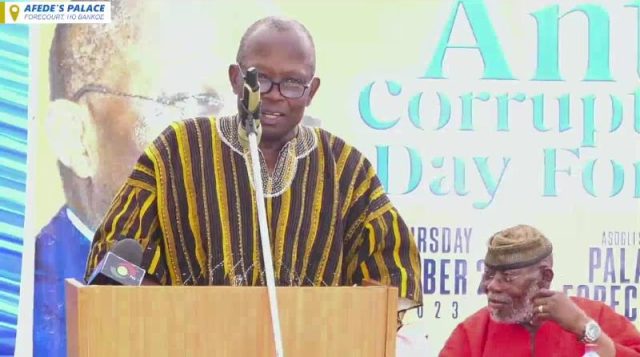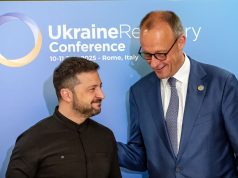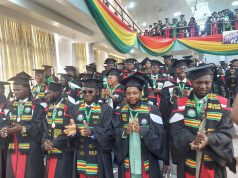Mr Daniel Domelevo, a former Auditor-General, has advised the government to commercialise Ghana’s fight against corruption.
He urged the government to establish a legal framework for licencing individuals and institutions to assist in the investigation and prosecution of corruption and corruption-related offences.
This would encourage young accountants and lawyers interested in fighting corruption to pursue cases, particularly those included in the Auditor-General’s reports.
Mr Domelevo suggested this while delivering an accountability lecture in Accra on Thursday, July 18, on the topic “Is Ghana winning the fight against corruption?”
It was organised by the Centre for Social Democracy and Fredrich Ebert Stiftung, both of which strive to promote democracy and encourage long-term economic growth.
Mr. Domelevo argued that commercialising the fight against corruption would help in investigating of individuals, regardless of affiliation, tand lead to the recovery of funds.
“When you’ve been registered and I’ve been registered, you can decide to excuse your friends, but I’ll go for them. In this manner, no one is safe, because your friend may not be my friend. So, if you decide to ignore some cases, others may take it on,” he said.
Mr. Domelevo also advocated for a clear and effective remuneration framework for corruption investigators and lawyers who will fight corruption fight.
“They should be remunerated because investigation is a very expensive thing. You need money and resources, including lawyers to prosecute. If they’re able to recover the money, then, they should be given something in return,” he said.
Mr. Domelevo further called for the merger of some anti-graft institutions, such as the Economic and Organised Crime Office (EOCO) and the Office of the Special Prosecutor (OSP), and that they be allowed ‘oxygen to breath.’
There should also be a periodic lifestyle audit, a robust regime for declaration, publication and verification of assets and liabilities public officials, and meritocratic appointment of public officials.
He was certain that if those measures were implemented with good leadership, the country would save and manage money prudently to achieve the required rapid economic transformation.
Nana Yaa Jantuah, a former General Secretary of Convention People’s Party, advocated for a system in which heads of antigraft institutions are not appointed by the government.
She also suggested that legislation be enacted to empower heads of anti-corruption institutions to investigate and prosecute public officers even while in power, and to recover plundered funds for the country.
Mr Fiifi Kwetey, General Secretary, National Democratic Congress (NDC), called for societal and attitudinal changes to make the fight against corruption a national campaign.
“If we have a society that is fundamentally premised on not respecting the character of people or the impact of people, then that society is premised on what you have in your pockets. That is a society that never simply overcome corruption,” he said.
Referring to past draconian actions to curb corruption, which did not yield the needed lasting societal change, he said, “so, you will have a Jerry Rawlings who will come, and three heads of State will be executed, [and] a lot of things would have been done.”
“… but what we have achieved is simply because of a situation where people go a little underground, and they will resurrect because the real virus is in the heart of society,” he said, and called for pragmatic national effort to build a strong society to fight against corruption.
Source: GNA

















